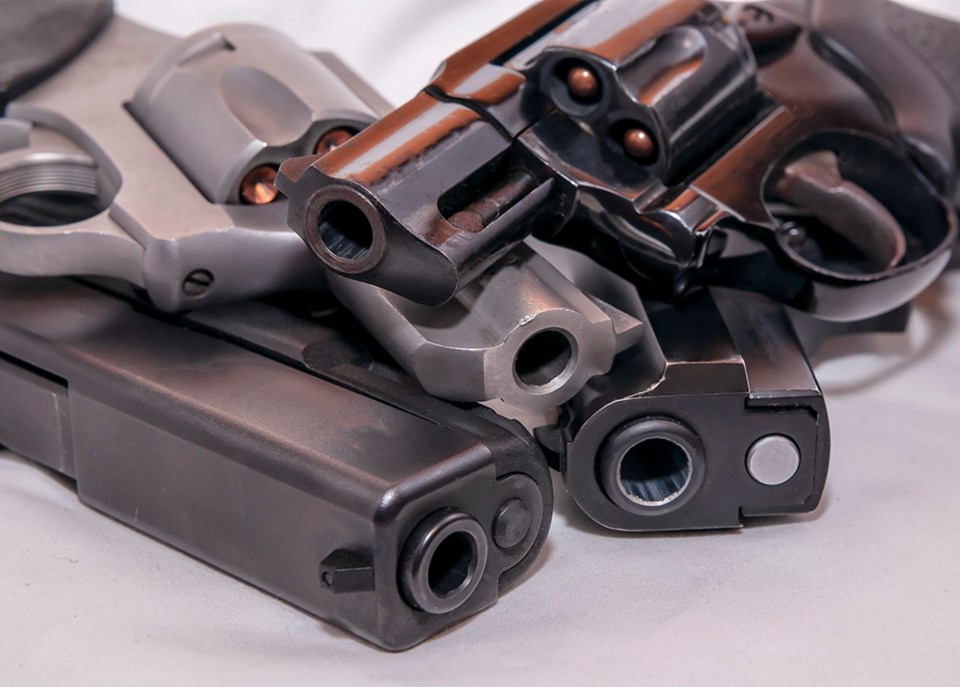SASKTOON — Between March 21 and April 10, a firearm amnesty period, residents of Saskatchewan are encouraged to contact their local police or conservation office to arrange to surrender unwanted firearms, replica firearms and/or ammunition.
During the period of the Saskatchewan Association of Chiefs of Police Firearm Amnesty, police will not pursue any charges in relation to the unauthorized possession of firearms surrendered as part of this initiative. Surrendered firearms will be checked by police to determine if they are involved in any ongoing investigations. Firearms will then be destroyed.
The amnesty program, sponsored by the Saskatchewan Association of Chiefs of Police, offers a proactive approach to the issue of gun violence in Saskatchewan.
“The SACP Firearm Amnesty recognizes that our province has a long history and tradition of hunting, agricultural production and recreational marksmanship. Firearms are a necessary tool in these vocations and pursuits,” stated a release issued Monday by Saskatoon Police Service. “The SACP distinguishes that legal, safe and responsible firearm ownership is the practice of most gun-owners in this province. The SACP Firearm Amnesty does not wish to have an adverse effect on responsible firearms owners. Instead, the SACP Firearm Amnesty is designed to lower the risk of violent offences involving firearms by safely collecting and disposing of unwanted firearms that may, otherwise fall into the hands of criminals through break and enters or accidental loss.”
SPS stated reducing the numbers of these firearms in our cities, towns and rural communities will have a positive impact on public safety.
An example of an unwanted firearm would be a firearm inherited as part of an estate, but no longer wanted by the surviving relative. The amnesty also extends to replica or imitation firearms, and any unwanted ammunition or parts of firearms.
Members of the public must not transport firearms to municipal services, detachments or conservation offices. Improper transportation of firearms presents a safety risk and can result in potential criminal implications. By pre-arrangement, police officers or conservation officers will attend to pick up unwanted firearms from the homes of residents who wish to surrender them.
In addition to the Saskatchewan RCMP and the Ministry of the Environment, the following municipal police services will be participating; Saskatoon, Regina, Prince Albert, Moose Jaw, Estevan, Weyburn, File Hills First Nations, and Wilton. Local details regarding arrangements for drop-off and pick-up will be made public in each community.
Saskatchewan RCMP issued this notice Monday: To schedule the pick-up of your unwanted firearms, call your local RCMP detachment. Find the contact information of your local RCMP detachment in Saskatchewan at: https://www.rcmp-grc.gc.ca/detach/en/find/SK.
Meanwhile, the Saskatchewan Firearms Office has launched a public awareness campaign to promote firearms safety in the province.
"Firearms safety starts with you," Chief Firearms Officer Robert Freberg said. "I encourage firearms owners across the province to lead by example and teach the next generation how to be safe when using and storing firearms and ammunition."
Safety tips when handling a firearm include:
- Learn the basic characteristics of the firearm you are using including how to load, handle and store the firearm safely;
- Never point a firearm at anyone or anything you don't want to shoot;
- Ensure firearms are unloaded at all times when stored;
- Lock the firearms in a cabinet or safe or attach a secure locking device, such as a trigger lock or cable lock to ensure the firearm cannot be fired;
- Store ammunition separately or lock it up and always use the correct ammunition for your firearm; and
- Make sure unauthorized individuals do not have access to the keys or combination lock used to secure your firearm unless they are permitted and licensed.
Many responsible firearms owners in Saskatchewan enjoy hunting or travelling to other destinations that require them to relocate with their firearms. The Saskatchewan Firearms Office says it is important to make suitable arrangements with your accommodations provider to secure your firearms upon arrival. When stopping at restaurants or gas stations along the way, park in a location where your vehicle can easily be observed by you or others. The responsibility belongs to licensed owners to unload, secure and place firearms out of sight.
In 2021, Saskatchewan transitioned oversight of the province's firearms program from the federal government to the province with the appointment of its first provincially appointed Chief Firearms Officer. The office now administers the Firearms Act in Saskatchewan, which includes jurisdiction over the licensing, storage, transportation and carrying of firearms.




